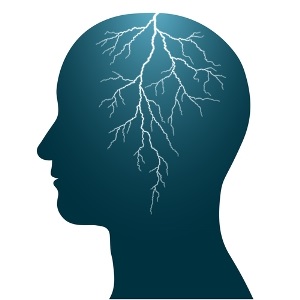
Now 23 years old, Mkhwena developed epilepsy at about the age of 13. She says her family wasted years and money visiting healers and sangomas who promised to cure her of the condition.
“Prior to six years ago when I started treatment, my family wasted time and money taking me to different sangomas, but still no one seemed to cure me as they all promised to do,” she says. “Because the healers knew how desperate my family was, they prayed on my family’s feelings and emotions to make money, but not to help.”
Recurring seizures
While the number of people in South Africa living with epilepsy remains uncertain, a 2009 study found that about one in every 143 people surveyed reported having the neurological condition that causes recurring seizures.
Although
epilepsy can start at any age, it most often begins during childhood. While it is
not possible to always identify the causes of epilepsy, the condition can be
associated with strokes, sever head injuries or tumours.
Growing up, Mkhwena adds that children teased her relentlessly due to her seizures. A lack of general awareness about the condition meant that stigma has followed her from childhood into adulthood, she adds.
Read: The outcome of epilepsy
“Kids called me bad names such as ‘mafa avuke,’ meaning die, and ‘wake up’ and these names are still stuck with me even today,” she remembers as tears well up in her eyes. “People always advise me not to have a child because they say my child will for sure born with epilepsy.”
Although genetics can play a part in epilepsy, there is no guarantee that children born to people living with epilepsy will inherit the condition.
Mkhwena says she recently began working at a Nelspruit supermarket. She says her new colleagues have not dealt well with her seizures at work.
A strong woman
“I have seizures while I am at work,” she says "I am usually (have no warning) when seizures are going to happen but when I wake up and see people’s reactions, that’s when I know I was unconscious”.
“(My co-workers) treat me like I don’t exist,” Mkhwena adds. “Believe me, that’s are worse than living with epilepsy.”
While she says that dealing with lifelong discrimination due to her illnesses has made her into a strong woman, she admits that the comments and stares get to her.
Read: Causes of epilepsy
“No matter how strong you think you are, the public comments can destroy your self-esteem, and make you feel hopeless and useless,” she says. “Being accepted by your family and friends does not mean the world will accept you as well.”
Although Mkhwena says she sometimes wishes she could hide her epilepsy, she tries to not care what other say about her. She does wish however that people would be taught from an early age what epilepsy is.
“At least kids with proper guidance and education learn to love respect other people’s feelings, and accept people with illnesses,” she says. “We’re not animals or evil people so stop judging us and give us a chance - no one chooses to be ill."
Read more:
Recognising the hidden signs of epilepsy
Epilepsy linked to early death
Image: Epileptic attack from Shutterstock




 Publications
Publications
 Partners
Partners











